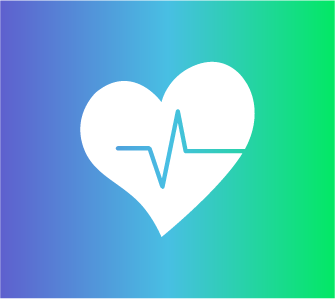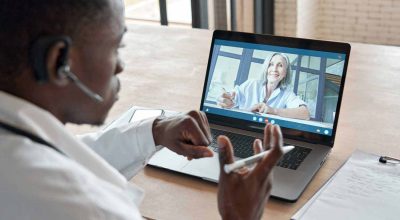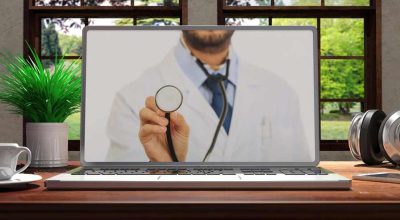Burnout is a genuine concern for physicians, even before the pandemic. As your practice begins to grow — from administrative tasks to billing, hiring, and more — you might find yourself becoming detached from work due to stress and burnout. In fact, many physicians are leaving the profession because of burnout, which leads to feeling less control over their practice and life in general.
More than ever, the need for physician’s to focus on self-care is essential, and it can save your health and your practice. Knowing when to step away and recuperate can help you recharge, rest, and regain your interest in helping your patients.
Self-care requires knowing when to ask for help, how to recognize your personal needs, and what methods are the most effective for self-care. Let’s take a look at five of the best physician self-care strategies for when burnout looms.

1 – First, get your office in order
You’ll never be able to manage stress if you’re dealing with an increasing burden of personal responsibility. If you have to personally take on administrative tasks, and other office tasks, you’re going to be overworked quickly. You became a doctor to heal patients, not work on the mundane trivialities of running your practice. You serve yourself and your patients best if you are fully staffed and using systems that make every aspect of business simpler and more efficient.
Implementing an integrated electronic medical record and telehealth platform that automates billing, credentialing, and patient management is a great first step. When you have automated and simplified your day-to-day processes, you can focus on fewer tasks, and prioritize what matters most to you.
2 – Focus on de-stressing
Once you have your office operating like a well-oiled machine, you can focus on your own well-being. Finding and involving yourself in hobbies is a wonderful way to take time for yourself. Many physicians who are leaving the practice feel as if they have no autonomy, and one reason for that is they either consciously or unconsciously spend too much time at work, physically and mentally.
If you never make time for self-enjoyment, you’ll never have the time for it. So while you might think you’re too busy to engage in free time, the risks and long-term problems from not taking a break can be catastrophic.
3 – Consider hiring more physicians
Especially in an age where telehealth is so successful and profitable, you can lower your workload by bringing on another doctor. What’s even better is that you can grow your practice in this way, opening up to new patients while not overburdening yourself. ViTel can help with this by making credentialing and hiring another provider who is a good fit for your practice much more manageable.
The primary method of physician credential assessment is human-driven and prone to error. It can also take a long time, and if you need help now, that’s not acceptable. Virtual credentialing cuts down on human error and makes the process faster and more reliable.
4 – Get some help
While we just talked about hiring some extra hands around the clinic, here we’re talking about actually engaging with a therapist. One of the best things you can do for stress is to speak with a professional. Doctors are often some of the most resistant to seeking outside treatment, and this is often due to a fear of being perceived as weak, or even the very real threat of having your practice and license jeopardized by seeking help for a mental health condition. But when done appropriately and discreetly seeking help from a psychologist, therapist, or another mental health professional can truly work wonders for your state of mind. It can also prevent long-term complications that may arise from self-medicating with alcohol, drugs, or other addictive behaviors.
By seeking professional help, you’re taking control of your mental health, leading to greater feelings of autonomy and self-governance. By deciding to take control of your mental health, you’ll feel better and more in charge of your life, which is a huge plus in the fight against burnout.
5 – Change up your habits
One of the best ways to charge your body and combat stress is to get exercise. Even 30 minutes a day can have a dramatic effect on your health, but also your mental well-being. Physical activity helps clear cortisol from the blood and regulate insulin levels.
Especially during times of high stress, we often turn to toxic coping mechanisms like alcohol or cigarettes, but we know these vices are dangerous in the long run. Cutting these out is a big step toward self-care and resolving the underlying current of stress that threatens to swallow you up.
Finally, cut as much processed food — especially seed oils and sugar — from your diet as possible. More and more research is showing a strong correlation between gut health and mental health. So when you eat better, you will actually feel better.
Consider a partner
If you’re already engaged with telehealth, or you’re considering the benefits it can bring to your practice, contact ViTel. We are leaders in the virtual medicine field, offering solutions for employment, credentialing, patient intake and data storage, billing, and even marketing. If you’re overwhelmed in your office, chances are good you just need a reliable partner, and we’re here to help.
To truly combat stress and practice self-care, you need to reevaluate how much you’re able to manage. Consider reaching out to a mental health counselor and fixing your diet and bad habits. Get that 30 minutes of exercise each day, and spread the workload around. You can’t do it all, and trying to do everything will drive you away from the vocation you love.
Practice radical self-care, and you’ll find you and your patients will thrive because of it.







